Carter Van Pelt had an inauspicious beginning for a reggae DJ, event producer, and historian. Born and raised in Nebraska, Van Pelt grew up surrounded by the sounds of John Denver, the Eagles, Simon & Garfunkel, and Bread—music beloved by his ever-encouraging, artistic mother.
Although he had an ear for soft rock, Carter’s musical passion was grounded in something Nebraska knew little about–reggae. He found the genre as many would in the ‘70s and ‘80s, through Bob Marley and The Wailers’ debut LP Catch A Fire, and via reggae-influenced groups like The Police. By his twenties, Van Pelt was voraciously collecting reggae records and documenting its artists (as well as others in the diaspora, including Fela Kuti) for The Beat magazine—all from a “flyover state.”
A New York resident since 2003, when he moved to the city for graduate school, Carter is now at the center of the city’s reggae scene, using his passion for, and deep knowledge of, Jamaican music in all its forms to create community. He founded Reggae On The Boardwalk, a summertime soundsystem series that has drawn over 80 reggae legends and emerging emcees and DJs to Brooklyn since 2010. He hosted the reggae program “Eastern Standard Time” on Columbia University’s WKCR for nearly a decade and has contributed liner notes to various records. He is formerly the Director of Catalog Development for Queens-based reggae label VP Records, where he compiled the 100-artist box set, Down In Jamaica – 40 Years Of VP Records.
Carter has taken his selections from New York’s SummerStage to Shanghai, London, Turks and Caicos, and Jamaica, where he spun Diplo’s 40th birthday party, and with an assist from producer Leon Michels, curated music for Chris Blackwell’s GoldenEye resort. But at home, in an apartment that somehow manages not to feel entirely overwhelmed with records at first glance (though they are certainly everywhere), Carter is remarkably down to earth. Digging through stacks, he recalls with specificity the stories behind a variety of tunes and his relationships to many of the genre’s artists.
For his Dust & Grooves interview and mixtape, Carter felt the pressure to perfect his mix while knowing he couldn’t make a bad mix–there’s just too much music he loves.“It just goes to show you that when you do this for a long period and when you’re passionate about a lot of records, there are many ‘right answers’ in terms of a selection,” he says. “You won’t hear anything that I don’t love.”
Press play on Carter’s mixtape and dive into one of the most clever minds in reggae.
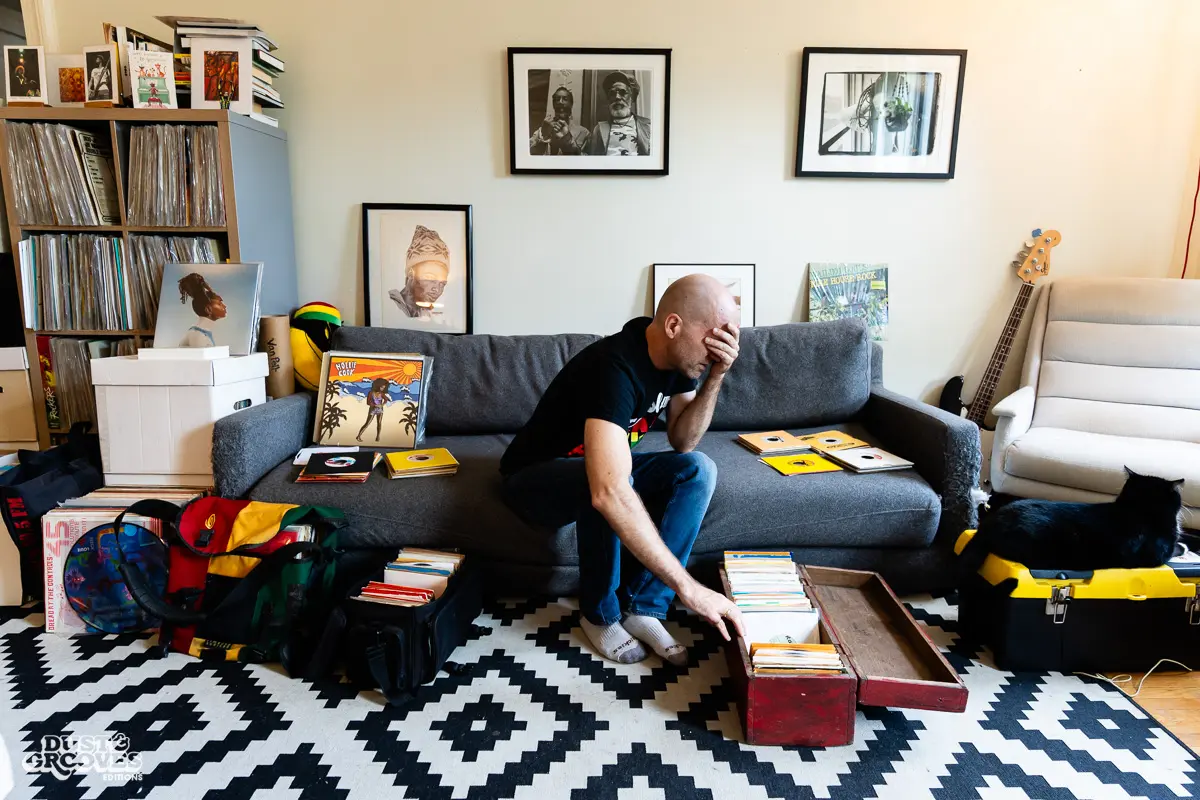
“I try not to obsess over what I don’t have. As a DJ, I already have more than enough to work with. I enjoy the discovery more than the chase.”
Carter Van Pelt Tweet
You’re from Nebraska, which is not exactly a reggae hotspot. How did you get into reggae? Was there a particular record that sparked your passion?
By the time I started listening to popular music in the early ’80s, reggae was already part of the mix, thanks to Bob Marley, but also bands like The Police, Elvis Costello, Blondie, and The Clash, who had reggae influences. I saw Bob Marley performing “Get Up, Stand Up” on TV and, as a ten-year-old in Nebraska, that line, “stand up for your rights,” felt so incisive and made sense to me.
Catch a Fire by The Wailers, their first Island LP, sparked something. The track, “Midnight Ravers,” especially struck me. I’ve been chasing the dragon to try and get the “Midnight Ravers” feeling ever since.
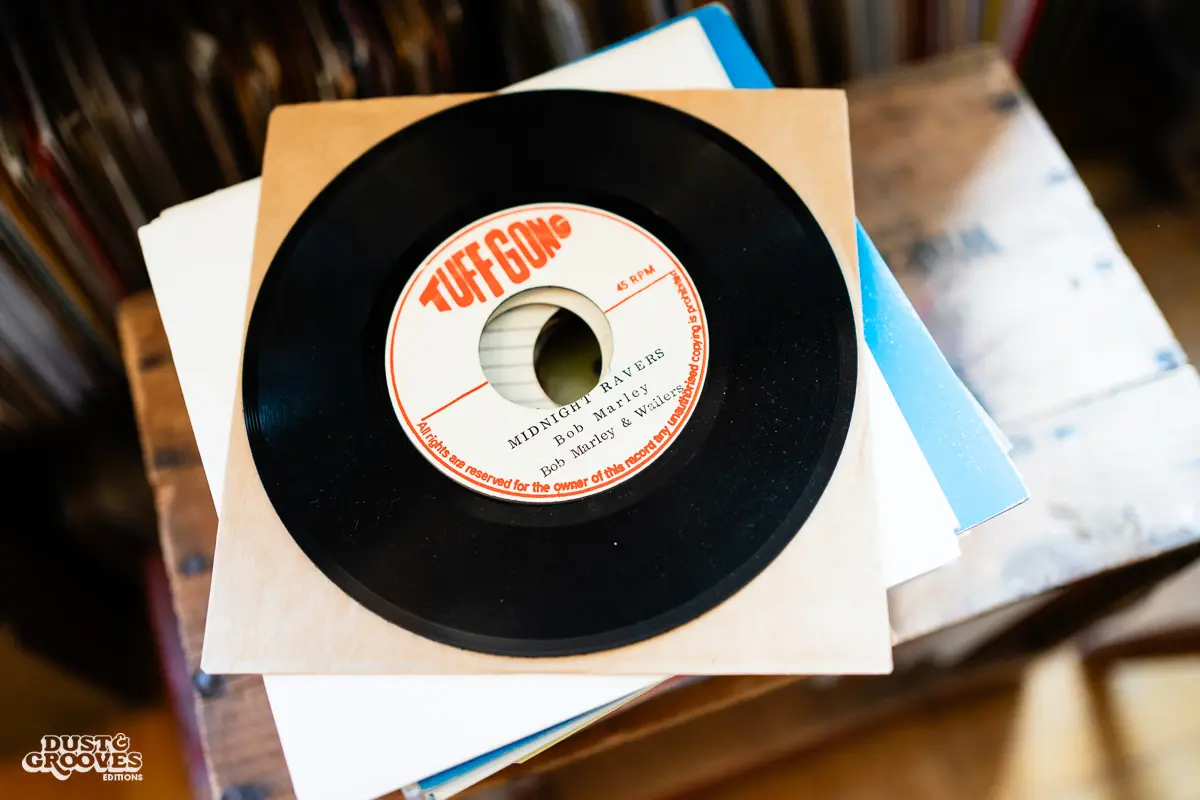
Bob Marley & The Wailers – “Midnight Ravers.” “This song is from the Catch A Fire album, which is the first Island LP by The Wailers. ‘Midnight Ravers’ is one of my all-time favorite recordings. By the time I started listening to popular music around 1980, reggae had seeped in and was a very hip force of influence. Bob Marley had gone international, but that was within a year of the end of his life.”
Who had the biggest impact on your love of reggae outside of Marley?
To continue reading this interview we humbly ask you to consider supporting Dust & Grooves by becoming a paying premium member.
Become a member or make a donation
Support Dust & Grooves
Dear Dust & Groovers,
For over a decade, we’ve been dedicated to bringing you the stories, collections, and passion of vinyl record collectors from around the world. We’ve built a community that celebrates the art of record collecting and the love of music. We rely on the support of our readers and fellow music lovers like YOU!
If you enjoy our content and believe in our mission, please consider becoming a paid member or make a one time donation. Your support helps us continue to share these stories and preserve the culture we all cherish.
Thank you for being part of this incredible journey.
Groove on,
Eilon Paz and the Dust & Grooves team


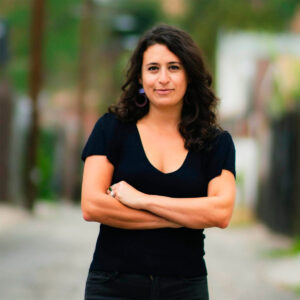
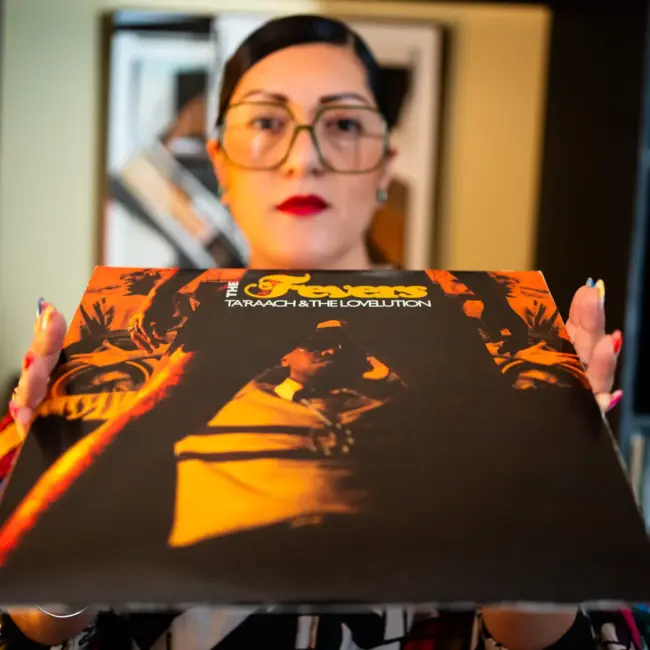

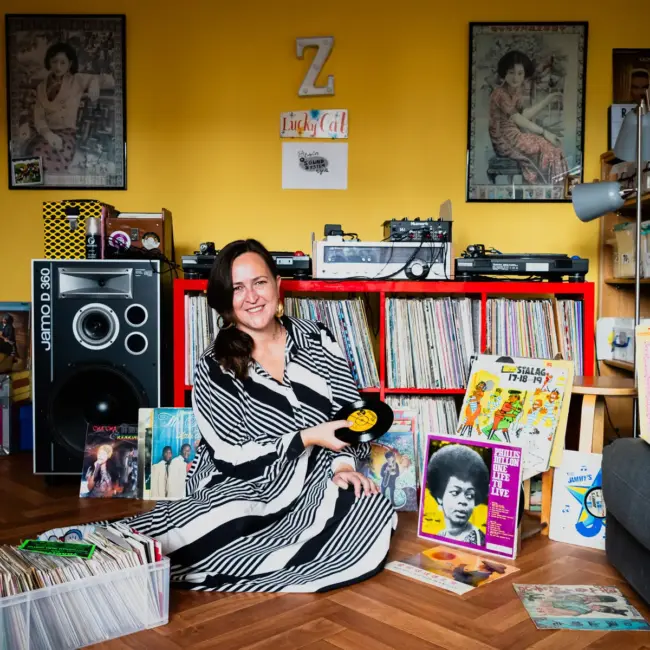
1 Comment
Hh
In truth D Brown did at least one interview in Brazil after Carter. It’s easily found on YouTube.